All Stories
-
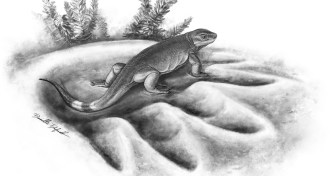 Paleontology
PaleontologyEarly meat-eater may have led to larger plant-eaters
The newly identified Eocasea martini may have set the stage for later, much larger animals to become plant-eaters.
-
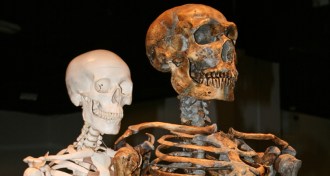 Genetics
GeneticsGene activity sets humans apart from extinct hominids
Differences in gene activity caused by DNA methylation distinguish modern people from Neandertals and Denisovans.
-
 Astronomy
AstronomyEarth-sized planet found in star’s habitable zone
Astronomers have found a potentially habitable Earth-sized planet around a cool red star.
-
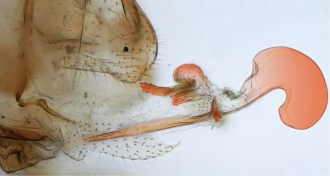 Animals
AnimalsMost extreme female penis is found on cave lice
Female penis, male vagina have been discovered in tiny Brazilian insects.
By Susan Milius -
 Physics
PhysicsLaser kicks molecules into fastest ever spin
The powerful kick of a laser has spun molecules faster than they’ve ever been spun before: 10 trillion rotations per second, or 600 trillion RPM.
By Andrew Grant -
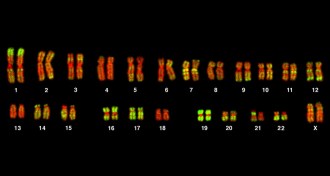 Genetics
GeneticsDown’s syndrome goes beyond chromosome 21
A genetic analysis suggests that the DNA changes linked to Down's syndrome happen on all chromosomes, not just the 21st.
-
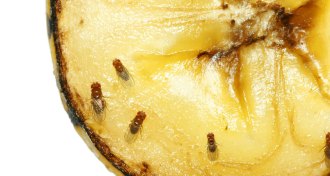 Animals
AnimalsScent of a fruit fly larva comes from its gut microbes
Microbes in the guts of fly larvae produce smells that attract fruit flies.
By Susan Milius -
 Microbes
MicrobesOne giant leap for zit-causing microbes
A bacterium that lives on humans and causes acne also hopped to domesticated grapevines and relies on the plant for crucial DNA repairs.
-
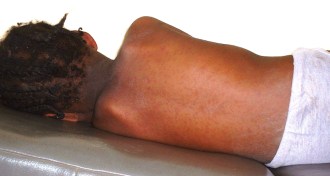 Health & Medicine
Health & MedicinePossible measles drug tests well in animals
Compound that saves ferrets from viral infection might someday lead to measles treatment.
By Nathan Seppa -
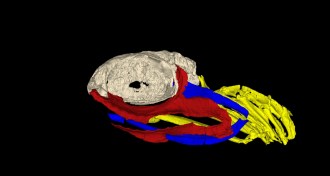
-
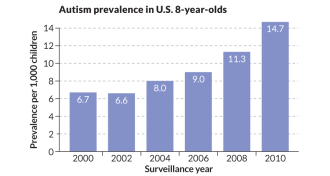 Neuroscience
NeuroscienceWhat’s behind rising autism rates
Better diagnosis may be driving a recent spike in autism.
-
 Quantum Physics
Quantum PhysicsExcitons’ motions captured in images
Scientists have observed how quasiparticles called excitons move.